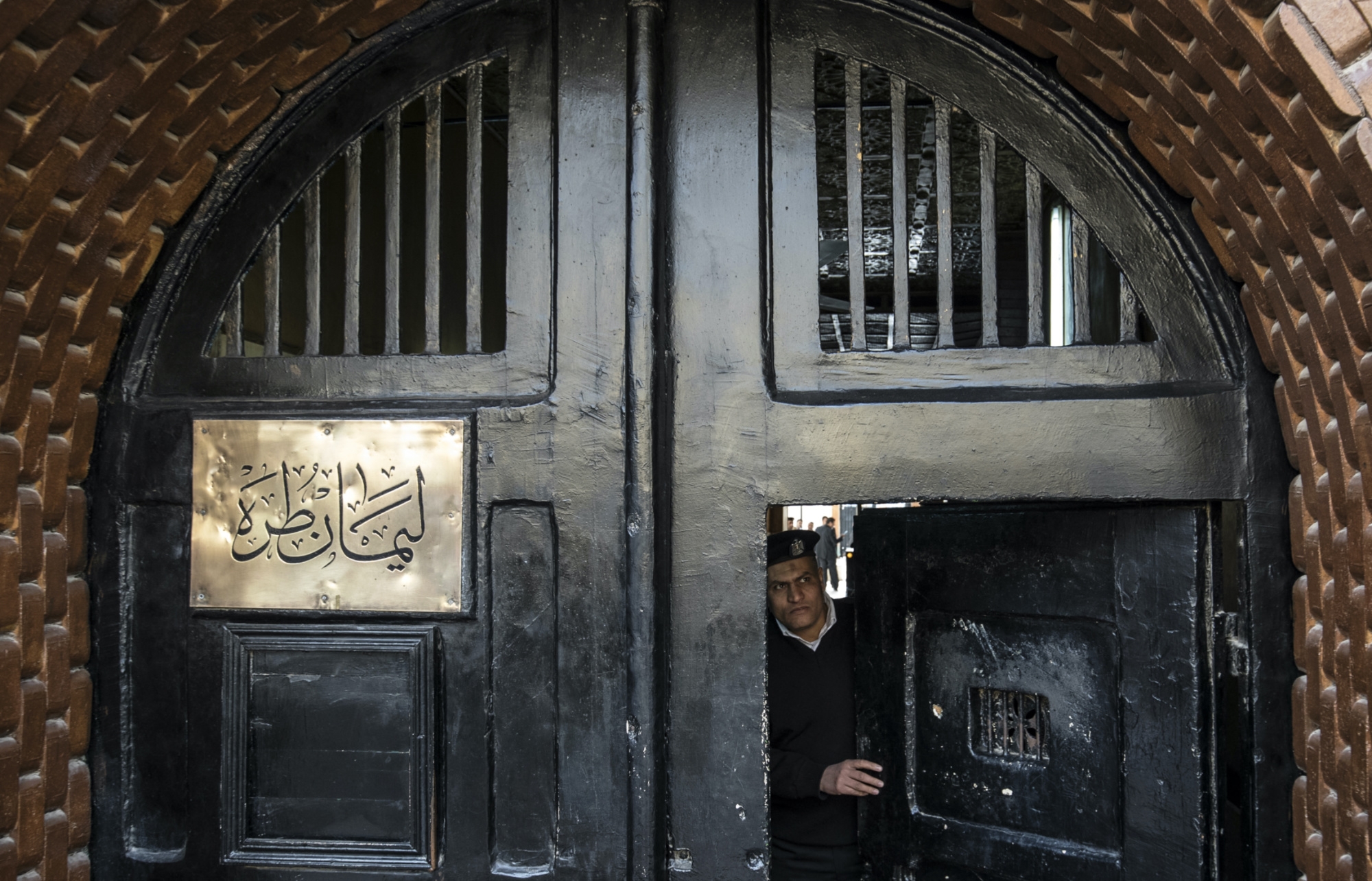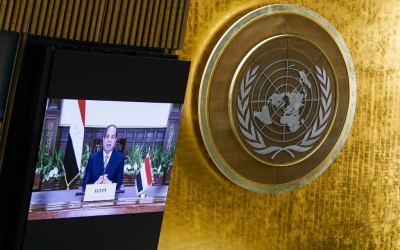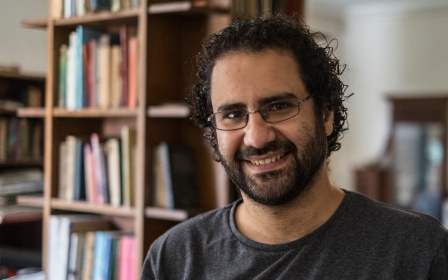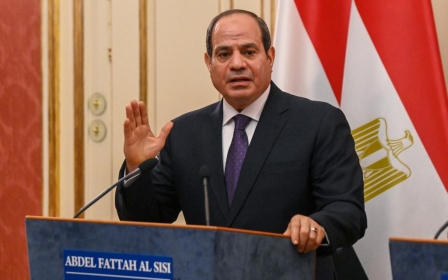Palestinian activist Ramy Shaath leaves for France after giving up Egyptian nationality

Egyptian authorities have freed Egyptian-Palestinian rights activist Ramy Shaath after almost two-and-a-half years in detention after forcing him to renounce his Egyptian nationality, his family said in a statement on Saturday.
The statement said that Shaath, who was a member of several secular political groups in Egypt and a co-founder of Egypt's pro-Palestinian Boycott, Divestment and Sanctions (BDS) movement, was released on the evening of 6 January and handed to a representative of the Palestinian Authority in Cairo before being flown to Jordan.
New MEE newsletter: Jerusalem Dispatch
Sign up to get the latest insights and analysis on Israel-Palestine, alongside Turkey Unpacked and other MEE newsletters
Shaath, who is the son of veteran Palestinian politician Nabil Shaath, was now on his way to France, home to his French wife, it added.
There was no immediate comment from Egyptian authorities on his release.
"If we are glad that the Egyptian authorities heard our call for freedom, we regret that they forced Ramy to renounce his Egyptian citizenship as a precondition for his release that should have been unconditional," the family statement said.
"No one should have to choose between their freedom and their citizenship."
Shaath was arrested in Egypt in June 2019 and held in pre-trial detention alongside other activists on accusations of aiding a terrorist group.
In August that year, Shaath's family said the charges against him were based on "findings" that he and his lawyer had not been allowed to examine.
Shaath surpassed his maximum two-year pre-trial detention period in July 2021 and remained in detention in Egypt's Tora prison.
His French wife, Celine Lebrun Shaath, who was deported from Egypt following his arrest, had lobbied the French government to pressure Egypt to release him.
Shaath's release comes months after a campaign advocating for his freedom was renewed so that he could be reunited with his father, who was suffering from severe deterioration of his health.
While in prison, his family said that Shaath had reported his own health issues as well as alarming prison conditions.
Since the military coup in 2013 that ousted Mohamed Morsi, Egypt's first democratically elected president, President Abdel Fattah el-Sisi has overseen what rights groups have described as the worst crackdown on human rights in the country's modern history.
Thousands of liberal critics as well as Islamists from the Muslim Brotherhood have been detained since the coup.
Sisi and his supporters have said that there are no political prisoners in Egypt, and that security measures were necessary to stabilise the country after the uprising in 2011 that ousted longtime ruler Hosni Mubarak.
Middle East Eye delivers independent and unrivalled coverage and analysis of the Middle East, North Africa and beyond. To learn more about republishing this content and the associated fees, please fill out this form. More about MEE can be found here.





